Astrology, an ancient practice that has captured the fascination of people for centuries, holds great significance in the culture and society of ancient India. Its origins can be traced back to the Vedic period, where it played a vital role in shaping various aspects of life. From determining auspicious times for rituals and ceremonies to predicting future events, astrology was deeply intertwined with Hinduism, medicine, politics, and daily life. Even today, its influence can be seen in the naming of individuals, the selection of auspicious dates for important occasions, and the belief in celestial alignments. However, astrology has also faced criticism and skepticism, with many questioning its scientific validity. In this article, we will explore the rich history and significance of astrology in ancient Indian society and delve into its impact on various aspects of life, as well as the controversies surrounding it.
The Origins of Astrology in Ancient India
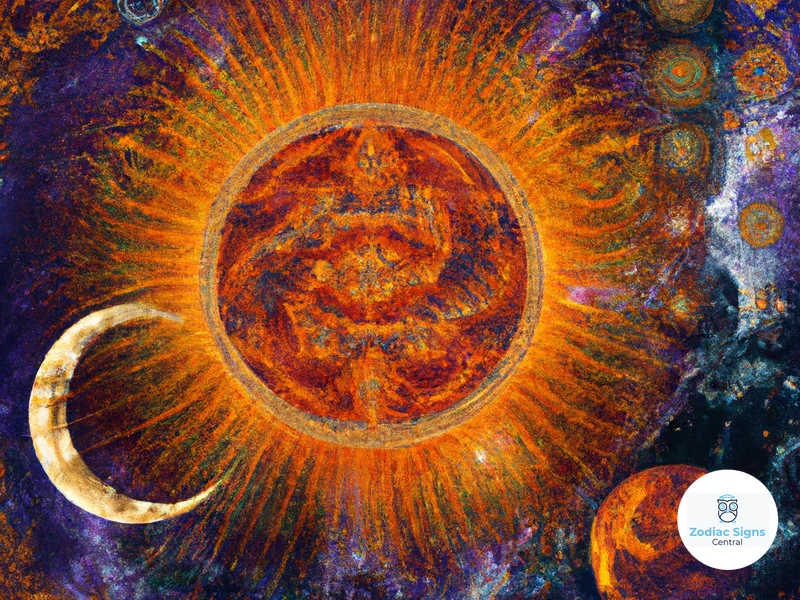
The Origins of Astrology in Ancient India can be traced back to the earliest recorded texts known as the Vedas. These sacred scriptures, dating back more than 3,000 years, contain hymns and rituals that reflect the beliefs and practices of the Vedic civilization. Within these texts, the Rigveda stands out as the oldest and most significant. It includes hymns dedicated to various celestial bodies and their influence on human life. The Rigvedic astrology, known as Jyotish, formed the foundation of astrology in ancient India. Jyotish means “the science of light,” and it emphasized the significance of celestial bodies in shaping human destiny. Over time, astrological concepts and principles were further developed and expanded upon in other prominent texts, such as the Yajurveda and Atharvaveda. These texts not only provided guidance on astrological calculations and predictions but also explored the interconnectedness between human beings and the cosmos. Astrology in ancient India was seen as a way to understand and align oneself with the cosmic forces, unlocking insights into one’s character, destiny, and spiritual path. It was a revered and respected discipline that permeated every aspect of society, shaping rituals, beliefs, and decision-making processes. The rich and ancient heritage of astrology in India continues to be celebrated and studied today, as people seek to delve deeper into the cosmic mysteries and understand their place within the universe.
Astrology and Hinduism
Astrology and Hinduism have a deep and intertwined relationship that dates back centuries. In Hinduism, astrology is seen as a sacred science and an integral part of spiritual and religious practices. The alignment of celestial bodies and their influence on human life is believed to be governed by divine forces. Astrology is seen as a tool to understand the divine plan and navigate one’s life accordingly. In Hindu temples, astrologers called “Jyotishis” can often be found offering consultations and guidance based on astrological charts and calculations. Many important Hindu rituals and ceremonies, such as weddings and naming ceremonies, are performed at specific astrologically auspicious times. The Hindu calendar, known as the Panchang, is based on astrological calculations and is used to determine the timing of festivals and religious observances. Astrology is also deeply embedded in Hindu mythology and epics. The positioning of stars and planets at the time of birth is believed to shape one’s destiny and traits, influencing the understanding of karma and reincarnation. Astrology guides individuals in making important life decisions, seeking remedies for challenges, and understanding their spiritual path. It is important to note that while astrology is deeply revered and practiced within Hinduism, it is not an obligatory or exclusive aspect of the religion. Each individual has the freedom to engage with astrology based on personal beliefs and faith. The profound connection between astrology and Hinduism continues to fuel the curiosity and spiritual exploration of millions, as they seek guidance and insight into their lives and the cosmic order.
Astrology and Medicine
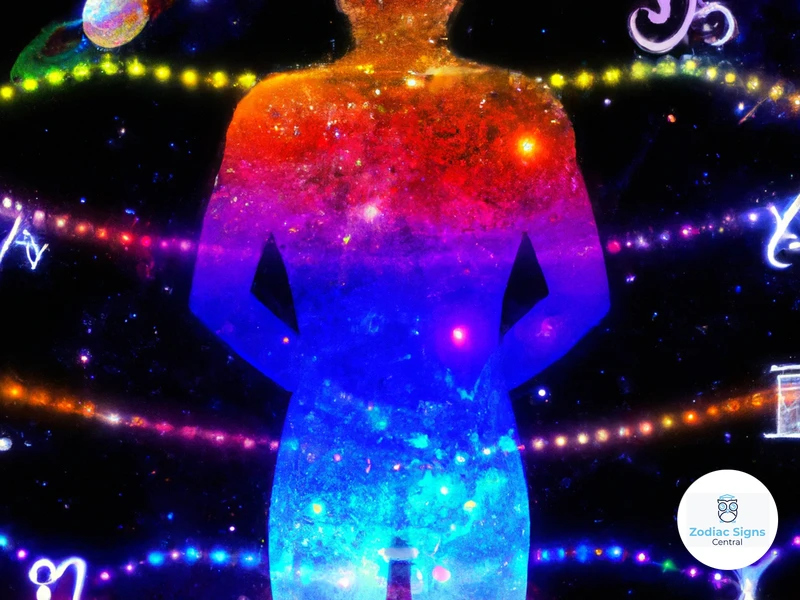
Astrology and Medicine have been closely intertwined in ancient Indian society. According to ancient astrological beliefs, the positions and movements of celestial bodies had a direct influence on human health and well-being. Astrologers studied the planetary configurations at the time of a person’s birth to determine their potential health risks and vulnerabilities. This knowledge was then used to provide guidance on preventive measures and personalized healthcare strategies. Ayurveda, the ancient Indian system of medicine, also incorporated astrology into its practices. The concept of “Prakriti,” or individual constitution, was heavily influenced by astrological factors. Astrologers analyzed the birth chart of an individual to identify their constitutional strengths and weaknesses, and Ayurvedic treatments and lifestyle recommendations were tailored accordingly. For example, individuals with a dominant fire element (as indicated by astrology) were advised to avoid excessively heating foods and activities. Astrology was also used to determine auspicious times for medical treatments, surgeries, and the intake of medication. Aligning medical interventions with favorable planetary positions was believed to enhance their effectiveness and aid in the healing process. While modern medicine has largely moved away from astrology, the ancient belief in the connection between celestial bodies and human health continues to be upheld by some individuals.
Astrology and Politics
Astrology and Politics have been intertwined in ancient Indian society, where astrological predictions played a significant role in shaping the course of political events. Kings and rulers depended on astrology to make strategic decisions, plan battles, and assess the outcomes of political endeavors. Astrologers were highly regarded advisors, consulted in matters of state and governance. They would analyze celestial positions and the birth charts of individuals to determine the most favorable time for important political decisions, such as the coronation of kings, the signing of treaties, or the declaration of wars. Astrology provided insights into the potential challenges and opportunities that lay ahead, and leaders believed that aligning their actions with celestial forces could improve their chances of success. Additionally, astrology played a role in selecting suitable successors or alliances, as birth charts were analyzed to assess the compatibility and potential of political partnerships. The influence of astrology on politics extended even further, as rulers sought to establish legitimacy by associating themselves with favorable astrological symbols and deities. Astrology played a vital role in shaping the political landscape of ancient India, guiding decisions, and determining the fate of kingdoms and empires.
Astrology and Daily Life
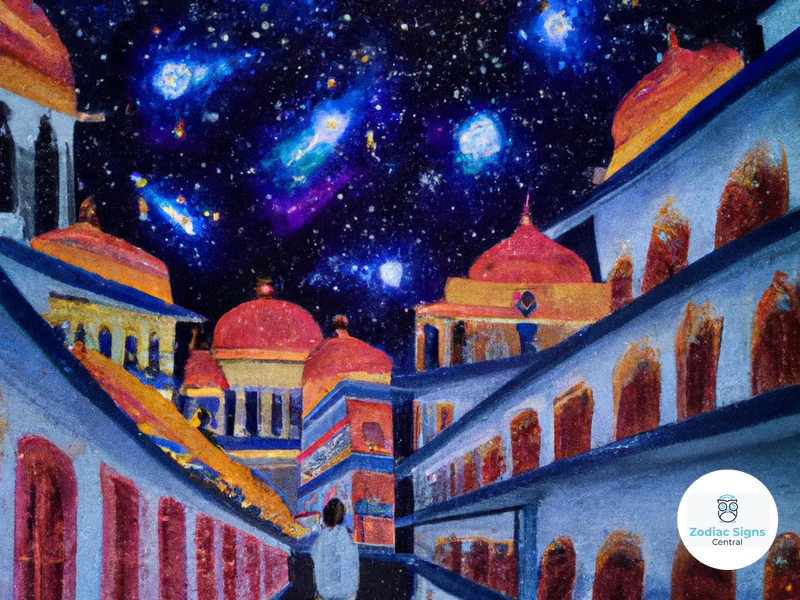
Astrology played a significant role in the daily life of ancient Indian society. It was believed that the celestial bodies influenced various aspects of life, and people relied on astrology to make important decisions and navigate their daily routines. Astrology guided individuals in choosing auspicious dates for weddings, ceremonies, and other significant events. In addition to events, astrology influenced personal choices, such as naming newborns. It was believed that the alignment of the stars at the time of birth had an impact on an individual’s character and destiny. As a result, astrologers were consulted to select names that would bring good fortune. Festivals and religious observances were also influenced by astrology. The timing of these celebrations was determined based on planetary positions to ensure maximum positive energy and blessings. Astrology even played a role in daily activities such as travel, business transactions, and medical treatments. The influence of astrology in daily life can still be seen today, as many individuals continue to consult astrologers for guidance and decisions regarding important matters in their lives.
Astrology and Marriage
Astrology has played a significant role in the institution of marriage in ancient Indian society. It is believed that the alignment of celestial bodies at the time of a person’s birth can influence their personality traits, compatibility with others, and overall destiny. In the practice of astrology, the concept of “kundali matching” is deeply ingrained when it comes to assessing compatibility between prospective partners. Kundali refers to the birth chart or horoscope of an individual, which is created based on their date, time, and place of birth. The kundali of both the bride and the groom are compared, taking into account various factors such as the positions of the planets, their houses, and their aspects. This comparison helps astrologers determine the level of compatibility between the couple and identify any potential challenges or obstacles that may arise in the marriage. The matching process involves examining the “Gunas,” which are qualities or attributes that are assigned scores. These scores are then used to assess the compatibility levels in areas such as temperament, emotional bonding, intellectual compatibility, and spiritual connection. Astrology provides valuable guidance in terms of making informed decisions about marriage, including selecting the most auspicious dates for the wedding ceremony based on astrological calculations. The belief in astrology’s influence on marital relationships remains strong among many individuals in India, as they believe that aligning with the cosmic energies can lead to a harmonious and fulfilling union. However, it’s important to note that while astrology may offer insights and guidance, personal compatibility and understanding are essential for a successful and happy marriage.
Astrology and Naming
Astrology and Naming have been closely intertwined in ancient Indian society. It was believed that the positioning of celestial bodies at the time of a person’s birth had a profound impact on their character and destiny. As a result, naming a child was not merely a matter of personal preference but a careful consideration of astrological influences. The astrology chart, known as the “Janam Kundali,” played a crucial role in determining the most suitable name for a newborn. According to astrological principles, each planet and its corresponding deity had a specific influence on different aspects of life. For example, naming a child with a name associated with the deity ruled by a specific planet was believed to imbue that child with the qualities and traits associated with that deity. Additionally, astrologers would analyze the position of various planets at the time of birth to suggest a name that aligned with the individual’s birth chart. The name chosen was believed to reflect the cosmic energies surrounding the child and influence their future. This practice still holds significance in some Indian communities today, where parents consult astrologers to select a name that aligns harmoniously with their child’s astrological profile. The naming process showcases the deep-rooted belief in the power of astrology and its influence on individual identity and life choices.
Astrology and Festivals
Astrology and Festivals in ancient India were intricately connected, as celestial alignments played a significant role in determining the dates and timings of important religious and cultural celebrations. The ancient Indian calendar, known as the Panchang, was a vital tool in this regard. The Panchang was based on astrological calculations and observations of celestial bodies and their movements. Through this calendar, astrologers determined auspicious times for festivals, ensuring that they were aligned with the favorable cosmic energies. For example, festivals like Diwali, the Festival of Lights, are celebrated based on the lunar calendar, specifically on the new moon day in the month of Kartik. Similarly, Makar Sankranti marks the transition of the Sun into Capricorn and is celebrated on a specific day based on astrological calculations. Festivals were not only joyful occasions for celebration but also held immense spiritual significance. People believed that participating in festivities during auspicious astrological alignments would bring blessings and abundance. The rituals and traditions associated with each festival were meticulously designed to align with the cosmic energies, harnessing their positive influence to bring harmony, prosperity, and spiritual growth. Even today, astrology continues to play a role in determining festival dates in India, ensuring that these celebrations align with the cosmic rhythms. The deep connection between astrology and festivals highlights the profound reverence ancient Indian society had for the cosmic forces and their influence on human life, emphasizing the interplay between spirituality, culture, and the cosmos.
Astrology and Astronomy
Astrology and Astronomy, while related, are distinct fields of study. Astronomy focuses on the scientific observation and understanding of celestial bodies, their movements, and the laws that govern them. On the other hand, astrology is concerned with the interpretation of the influence of these celestial bodies on human life and behavior. In ancient India, astrology and astronomy were initially intertwined. Astronomical calculations were an integral part of astrology, as accurate celestial observations were necessary to cast astrological charts and make predictions. Astrologers relied on their knowledge of astronomical phenomena such as planetary positions, celestial alignments, and eclipses to interpret their significance in relation to human lives. However, over the centuries, astronomy gradually diverged from astrology as a separate scientific discipline. While ancient Indian astrology incorporated astronomical observations, it also delved into the spiritual and psychological aspects of human existence. While some argue that astrology lacks scientific validation, others see it as a tool for self-reflection, personal growth, and understanding the interconnectedness of the universe. Despite the differentiation between the two fields, astrology and astronomy continue to influence and inspire each other. The study of planetary movements and celestial phenomena can provide valuable insights into our understanding of the cosmos and its impact on our lives.
The Influence of Ancient Indian Astrology Today
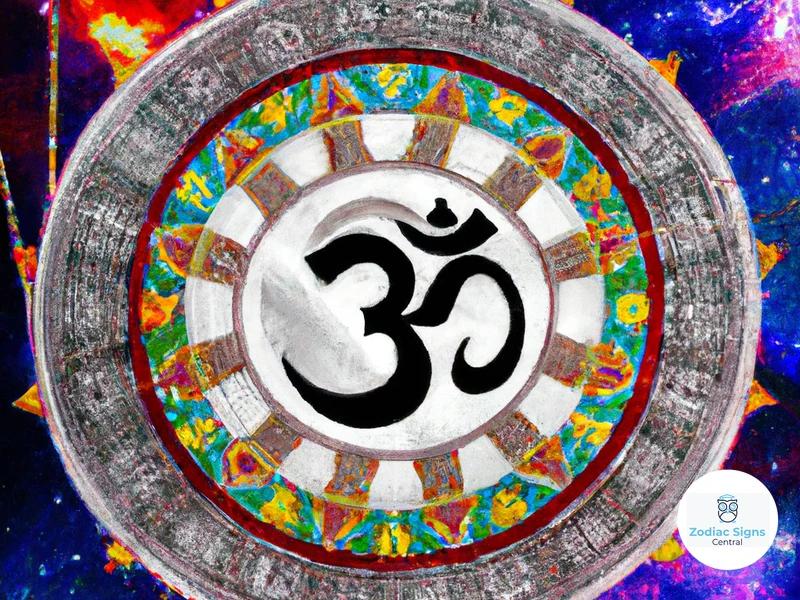
The Influence of Ancient Indian Astrology continues to hold a prominent place in modern Indian society. Even in this age of science and technology, astrology remains an integral part of people’s lives. Many individuals consult astrologers for guidance and insights into various aspects of their lives, including career choices, love life, health, and wealth. Astrology is seen as a tool for self-discovery and self-improvement, providing individuals with a deeper understanding of their strengths, weaknesses, and life purpose. This influence is particularly evident in the naming of individuals. It is believed that the alignment of planets at the time of a person’s birth can influence their characteristics and future. As a result, parents often consult astrologers for naming their children, with the belief that a harmonious name will bring positive energy and fortune. Another aspect where the influence of astrology is felt is in the selection of auspicious dates for important occasions and events. Astrologers are consulted to determine the most favorable time for marriages, housewarming ceremonies, business ventures, and festivals. People believe that aligning these events with favorable celestial positions will bring success, prosperity, and happiness. Astrology also plays an essential role during festivals and religious ceremonies. The alignment of planets and celestial events is taken into consideration when deciding the auspicious timing for rituals and important activities. Many astrologers also offer guidance on performing specific rituals and remedies to counteract negative influences or enhance positive outcomes. Despite the rapid scientific advancements, the influence of ancient Indian astrology endures, providing a sense of guidance, solace, and spiritual connection for many individuals. Its practice and relevance are deeply ingrained in the cultural fabric of the country, making it an integral part of everyday life.
The Criticism and Skepticism
The Criticism and Skepticism surrounding astrology in ancient India have been present throughout history. While astrology was deeply integrated into the Indian society and culture, there have always been individuals and groups who cast doubt on its validity and scientific nature. One of the main criticisms revolves around the lack of empirical evidence to support astrological claims. Skeptics argue that the celestial bodies and their positions simply cannot influence human behavior and events in a measurable and predictable way. They assert that astrology relies on vague and generalized statements that can be interpreted to fit any situation, making it inherently subjective. Another criticism is the potential for confirmation bias, where individuals selectively focus on the predictions that align with their experiences while disregarding or forgetting the ones that do not. Critics also point out the existence of contradictory astrological systems and interpretations, which raises questions about their reliability and accuracy. Additionally, skeptics argue that astrology lacks a robust and consistent method for testing and verifying its predictions. Despite these criticisms, astrology continues to have a significant following and plays a role in the lives of many people. Whether it is seen as a tool for self-reflection, guidance, or entertainment, astrology continues to attract both believers and skeptics, fueling lively debates about its merits and limitations. (For more information on the criticism and skepticism surrounding astrology, you can refer to this article on unveiling the dark side of Taurus personalities.)
Conclusion
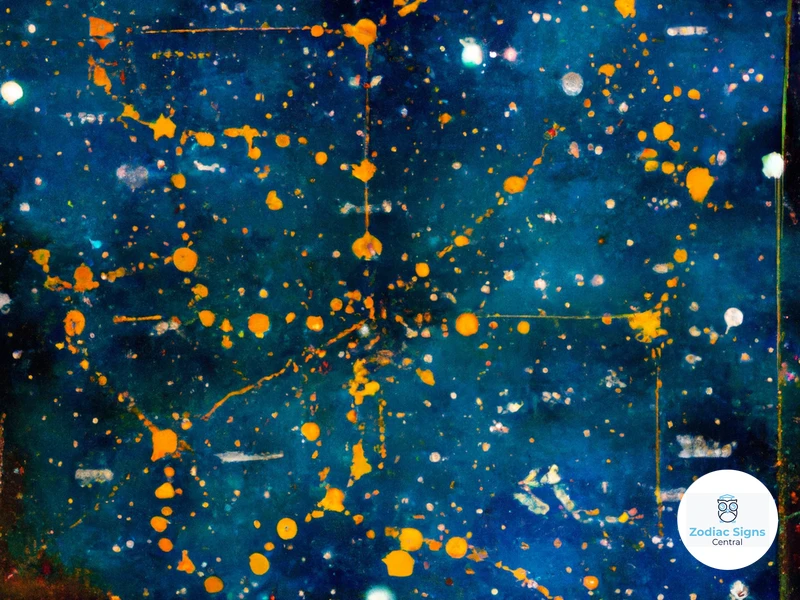
In conclusion, the significance of astrology in ancient Indian society cannot be understated. With its origins dating back to the Vedic period, astrology played a fundamental role in shaping various aspects of life. It was intertwined with Hinduism, serving as a guide for rituals, ceremonies, and spiritual practices. Astrology also found its place in the field of medicine, where it was used to diagnose and treat ailments based on astrological charts and planetary alignments. Furthermore, astrology influenced politics by guiding important decisions and strategies of rulers and kingdoms. In daily life, astrology played a crucial role in areas such as marriage, naming practices, and festivals. The influence of ancient Indian astrology can still be felt today, as individuals use it to make important life choices and seek guidance about their future. However, astrology has also faced criticism and skepticism, with many questioning its scientific validity. Despite the controversies, astrology continues to capture the fascination of people and remains a significant part of Indian culture. By exploring the rich history and impact of astrology in ancient Indian society, we gain a deeper appreciation for the connection between humans and the cosmos and the role astrology has played in shaping the lives of individuals and communities alike.
Frequently Asked Questions
What is the significance of astrology in ancient Indian society?
Astrology held great significance in ancient Indian society as it was believed to offer insights into various aspects of life, including predicting future events, determining auspicious times for rituals and ceremonies, and understanding one’s character and destiny.
What are the origins of astrology in ancient India?
Astrology in ancient India can be traced back to the Vedic period, specifically to the sacred texts known as the Vedas. The Rigveda, Yajurveda, and Atharvaveda played a crucial role in shaping and developing astrological concepts and principles.
Was astrology closely associated with Hinduism?
Yes, astrology and Hinduism were closely associated. Astrological beliefs and practices were deeply ingrained in Hindu rituals, ceremonies, and spiritual teachings. Astrology was seen as a way to connect with the divine and understand the cosmic forces.
How did astrology influence medicine in ancient India?
Astrology and medicine were interconnected in ancient India. Astrological principles and calculations were used to determine auspicious times for medical treatments and surgeries. It was believed that aligning medical procedures with planetary positions could enhance the chances of success and healing.
Did astrology have an impact on politics in ancient India?
Yes, astrology played a significant role in politics in ancient India. Kings and rulers sought astrological guidance for decision-making, choosing auspicious dates for important events, and strategizing military campaigns. Astrologers were valued advisors in matters of governance.
How did astrology influence daily life in ancient India?
Astrology influenced various aspects of daily life in ancient India. It guided the selection of auspicious dates for weddings, naming ceremonies, and other important occasions. Astrological charts were consulted for personal and professional decisions, and people believed in the influence of celestial bodies on their lives.
What role did astrology play in marriage?
Astrology played a crucial role in marriage in ancient India. Before a marriage alliance, astrological compatibility between the prospective partners was assessed to ensure a harmonious union. Astrological charts were consulted to identify potential challenges and remedies for a successful married life.
How did astrology influence naming practices in ancient India?
Naming practices in ancient India were influenced by astrology. It was believed that the chosen name could impact an individual’s life and future. Astrological charts were consulted to select a name that was in alignment with the individual’s birth chart and to avoid unfavorable influences.
Did astrology guide the timing of festivals in ancient India?
Yes, astrology played a significant role in determining the timing of festivals in ancient India. Astrological calculations were used to choose auspicious dates and times to celebrate religious festivals, ensuring that they aligned with celestial energies and were considered propitious.
How does ancient Indian astrology continue to influence the present day?
Ancient Indian astrology continues to influence the present day in various ways. Many people still consult astrologers for guidance in important life decisions, such as marriage and career choices. Astrology is also integrated into daily practices, such as selecting auspicious dates for ceremonies and festivals.
References
Frequently Asked Questions
1. What is the history of astrology in ancient India?
Astrology has a rich history in ancient India dating back thousands of years. It originated from the ancient texts known as the Vedas, which were written between 1500 and 500 BCE. These scriptures contain detailed information about the influence of celestial bodies on human life and events.
2. How is astrology connected to Hinduism?
Astrology has deep roots in Hinduism and is considered an integral part of the religion. The ancient Hindu scriptures, such as the Puranas and the Upanishads, provide guidance on astrology and emphasize the belief in the cosmic interplay between humans, deities, and the celestial bodies.
3. What role did astrology play in ancient Indian medicine?
Astrology played a significant role in ancient Indian medicine, known as Ayurveda. It was believed that different celestial configurations had an impact on the physical and mental well-being of individuals. Astrological charts were used to determine the ideal timings for medical treatments and the optimal diet for maintaining good health.
4. How did astrology influence politics in ancient India?
Astrology had a strong influence on politics in ancient India. Kings and rulers would often consult astrologers before making important decisions or going into battle. Astrological charts were used to assess the outcome of political alliances, determine the auspicious timing for important events, and even select the most suitable successor to the throne.
5. How did astrology impact daily life in ancient India?
Astrology played a crucial role in various aspects of daily life in ancient India. It influenced marriage arrangements, naming traditions, and even the timing of festivals.
6. How did astrology influence marriage in ancient India?
In ancient Indian society, astrology played a key role in marriage. Horoscopes of prospective partners would be matched to ensure compatibility and a harmonious union. Astrological factors such as the positions of planets and the lunar calendar were considered when determining the most auspicious wedding dates.
7. How did astrology impact naming traditions in ancient India?
Astrology influenced the naming traditions in ancient India. It was believed that choosing a name based on astrological principles could bring luck, prosperity, and protect the individual from ill effects. The positions of the stars, planets, and moon were taken into consideration when selecting a suitable name.
8. How did astrology influence festivals in ancient India?
Astrology played a significant role in determining the dates of festivals in ancient India. The positions of celestial bodies were considered to select the most auspicious time for celebrating festivals. This ensured that the festivities aligned with cosmic energies and were believed to bring good fortune and blessings.
9. How is ancient Indian astrology related to astronomy?
Ancient Indian astrology and astronomy were closely related. In fact, astrology was considered a branch of astronomy in ancient times. Astronomical observations and calculations were essential for creating accurate astrological charts and predictions.
10. How does ancient Indian astrology continue to influence society today?
Ancient Indian astrology continues to have a significant influence on society today. Many people still consult astrologers for guidance on various aspects of life, such as career choices, relationships, and personal well-being. Astrological concepts and practices are deeply ingrained in the Indian cultural fabric.






